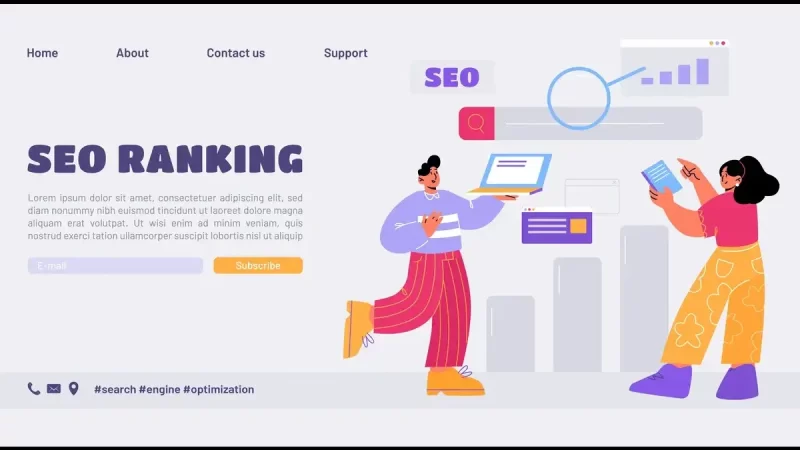The Potential Impact of Google’s Latest Presentation: How We Think About Ranking?

Google’s recent presentation, titled “How We Think About Ranking,” has sparked considerable interest and speculation within the SEO (Search Engine Optimization) community. This unveiling sheds light on Google’s approach to ranking websites, potentially signaling significant changes in the search landscape. Let’s delve into the potential impact of this latest revelation.
Google’s Shift in Ranking Philosophy
The presentation provided insights into Google’s evolving methodology in evaluating and ranking websites. It emphasized the importance of a holistic approach that goes beyond traditional ranking factors. Google highlighted the significance of user experience, relevance, and context in determining search rankings.
Emphasis on User-Centric Metrics
One of the key takeaways from the presentation is Google’s increased emphasis on user-centric metrics. Factors like dwell time, click-through rates, and overall user engagement on a website are gaining prominence. This signals a shift towards rewarding websites that genuinely satisfy user intent and deliver a seamless browsing experience.
Contextual Relevance and Semantic Search
Google’s focus on context and semantic search implies a move towards understanding user queries in a more nuanced manner. It aims to deliver results that precisely match user intent, considering not only the keywords used but also the context in which they are employed. This necessitates content that comprehensively covers topics, providing value and relevance.
Potential Impact on SEO Strategies
The implications of Google’s new approach on SEO strategies are substantial. SEO practitioners may need to adapt their strategies to align with the evolving ranking criteria. Content quality, user experience, and optimizing for contextual relevance could take precedence over mere keyword optimization.
Importance of Quality Content and User Experience
The emphasis on user-centric metrics underscores the importance of quality content and exceptional user experience. Websites that prioritize delivering valuable, informative, and engaging content while ensuring an intuitive and seamless user interface are poised to benefit from these changes.
Evolving Role of AI and Machine Learning
Google’s reliance on AI and machine learning algorithms to understand user intent and context is likely to become more pronounced. This calls for a deeper understanding of how these technologies interpret and process information, influencing content creation and website optimization strategies.
Adapting to a Shifting Landscape
The SEO landscape is dynamic, and adaptability is key to success. Businesses and website owners must stay abreast of Google’s updates, continuously refine their strategies, and focus on user-centric approaches to maintain or improve their search rankings.
Key Takeaways
Google’s presentation marks a pivotal moment in the realm of SEO and website ranking. The shift towards a more holistic, user-centric approach signifies a changing paradigm in how websites are evaluated and ranked. Adapting to this evolving landscape by prioritizing user experience, contextual relevance, and high-quality content will be crucial for maintaining visibility and success in search results.
FAQs:
The presentation emphasized a shift towards a more holistic approach to ranking, highlighting the importance of user-centric metrics, context, and relevance in determining search rankings.
Google’s emphasis on user experience and contextual relevance suggests a need for SEO strategies to prioritize high-quality content, user engagement, and a comprehensive understanding of user intent.
User-centric metrics like dwell time, click-through rates, and overall user engagement indicate how well a website satisfies user intent. They’re gaining importance as Google aims to reward websites that provide a positive user experience.
Google’s emphasis on context and semantic search implies a move towards understanding user queries more comprehensively. Websites that deliver content aligned with user intent and context may see improved rankings.
While keyword optimization remains important, its significance might diminish in comparison to providing high-quality, relevant content that aligns with user intent and context.







